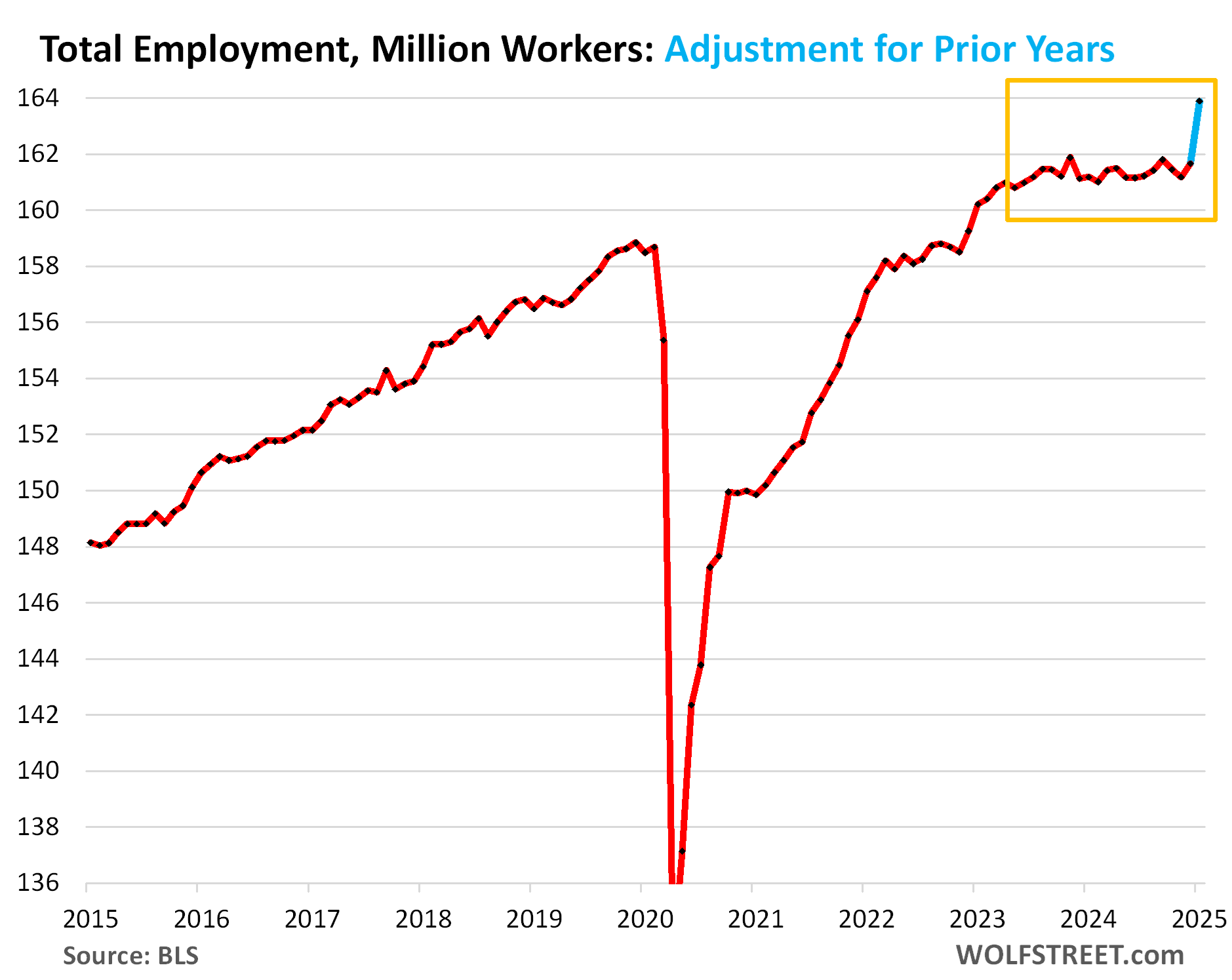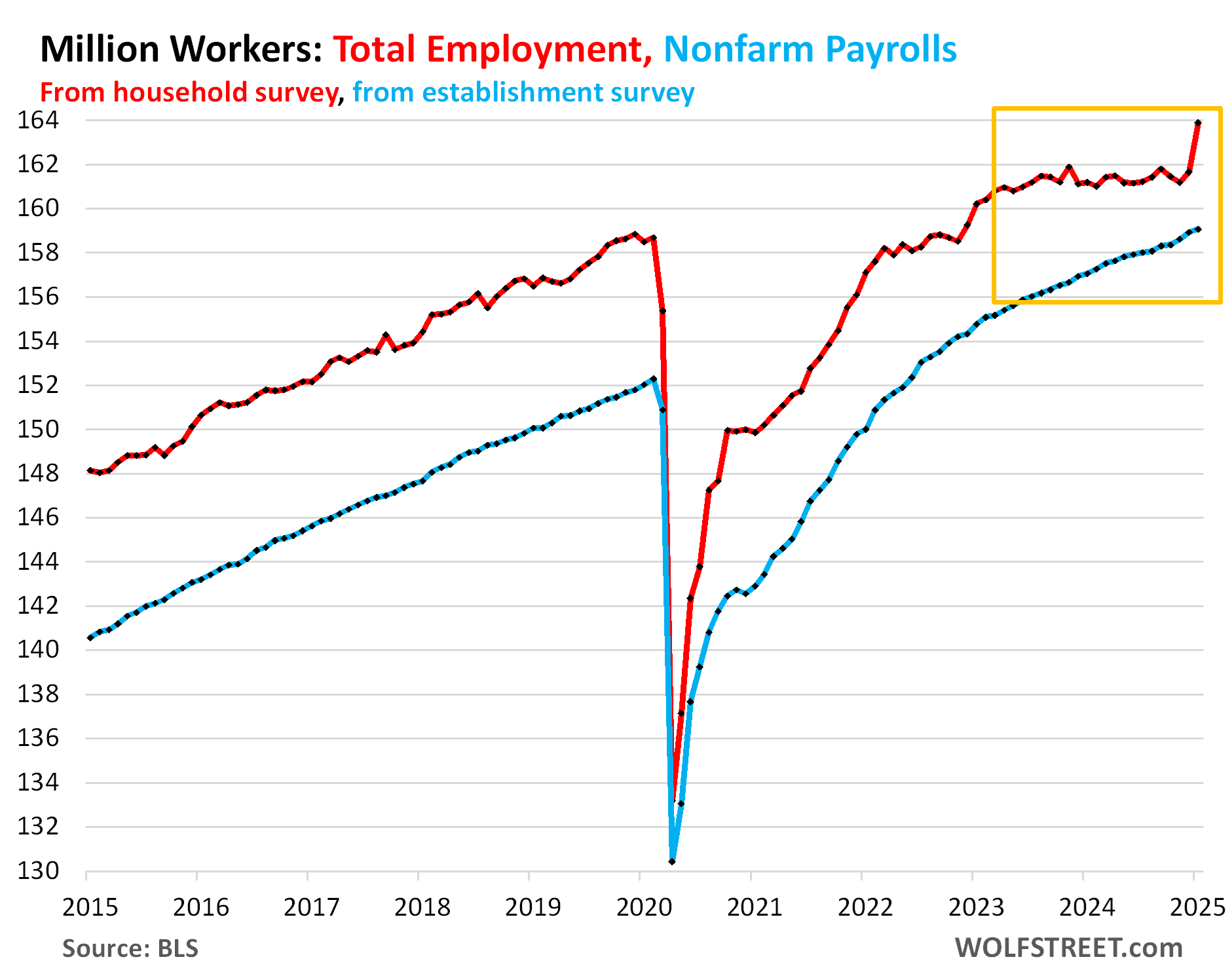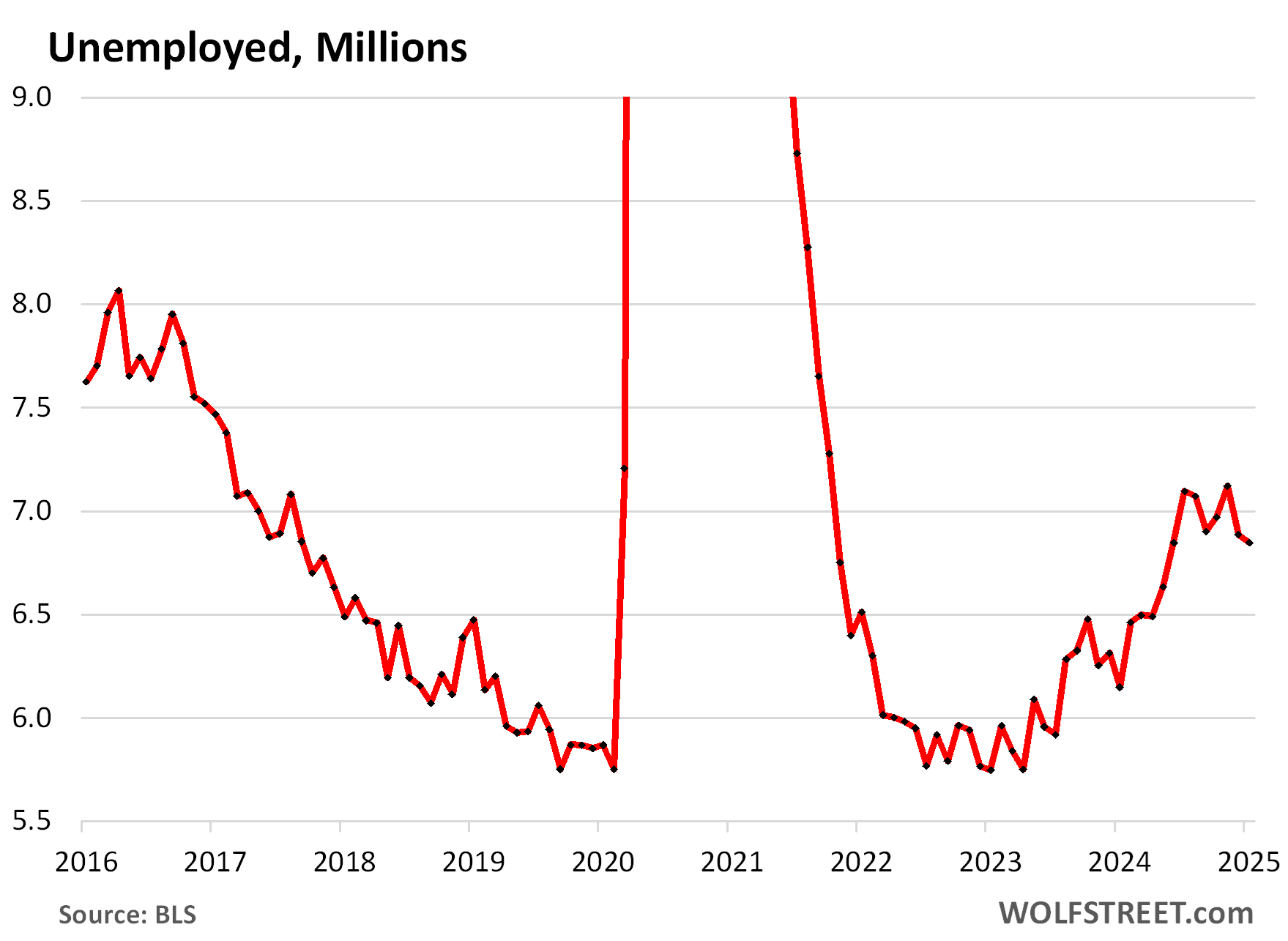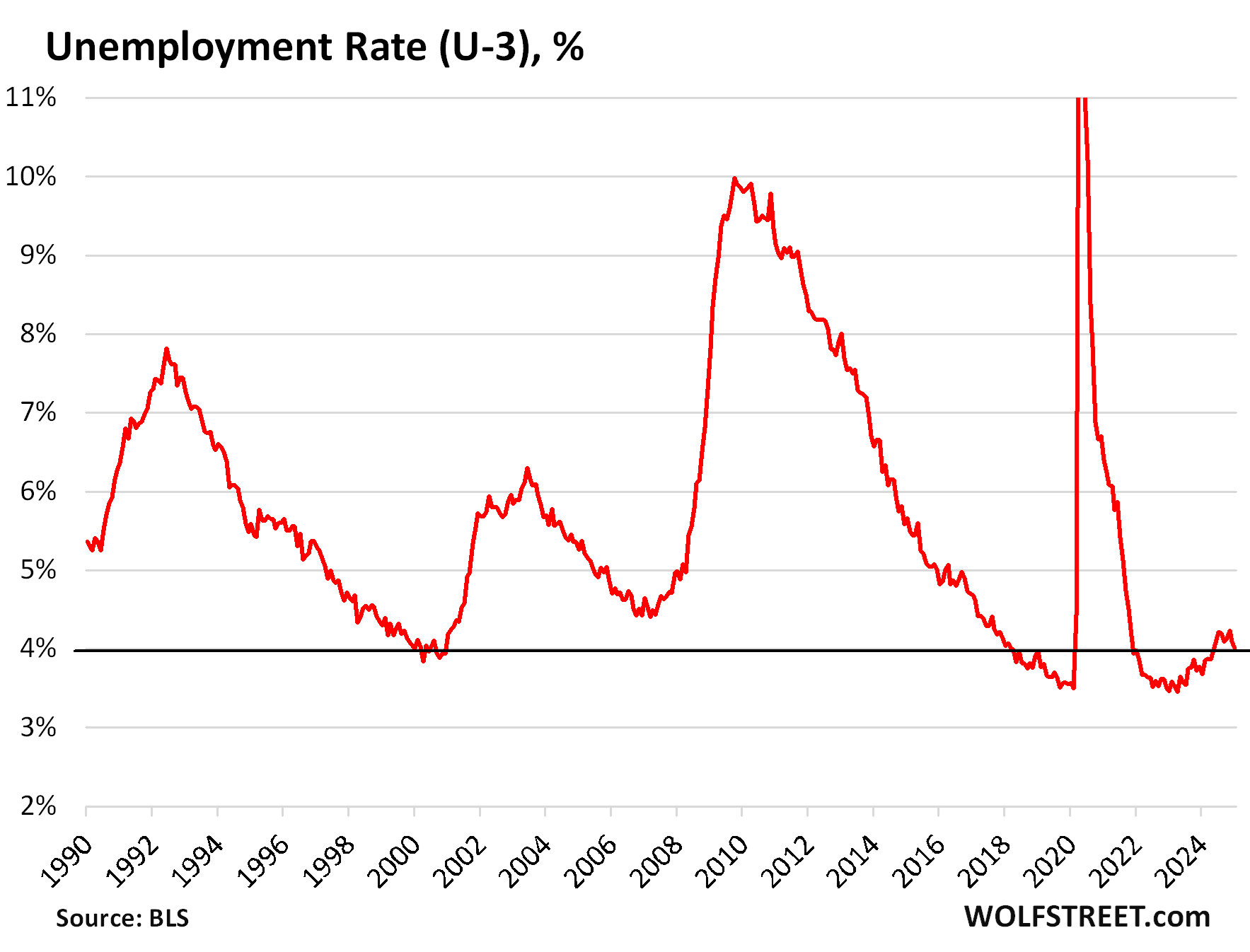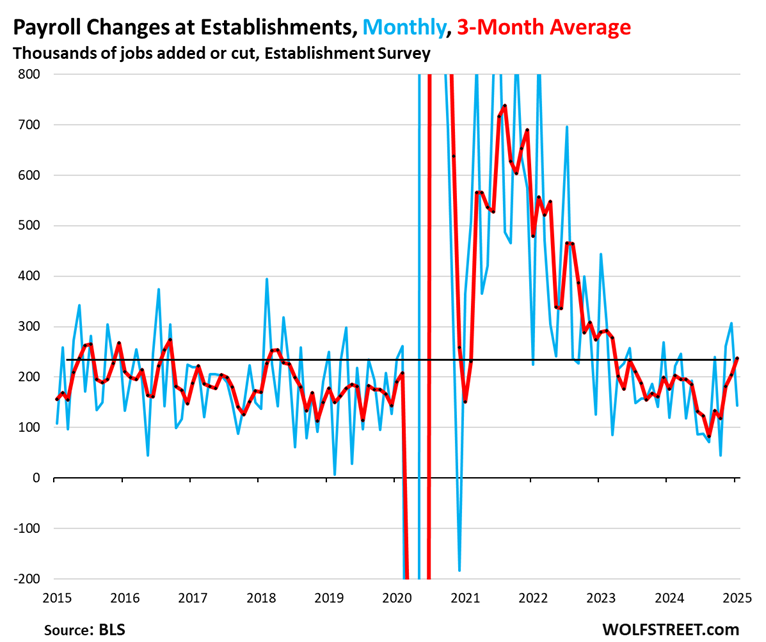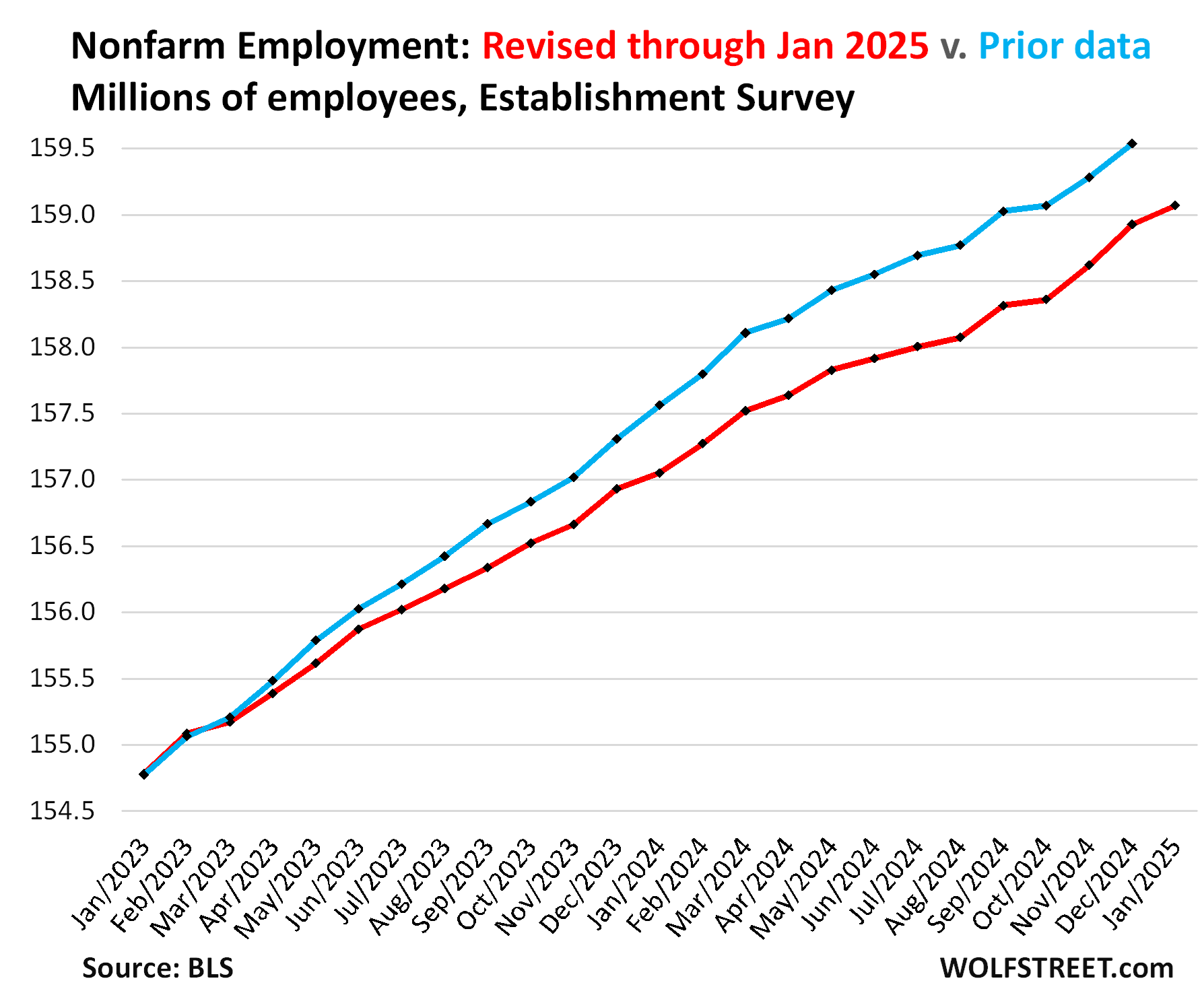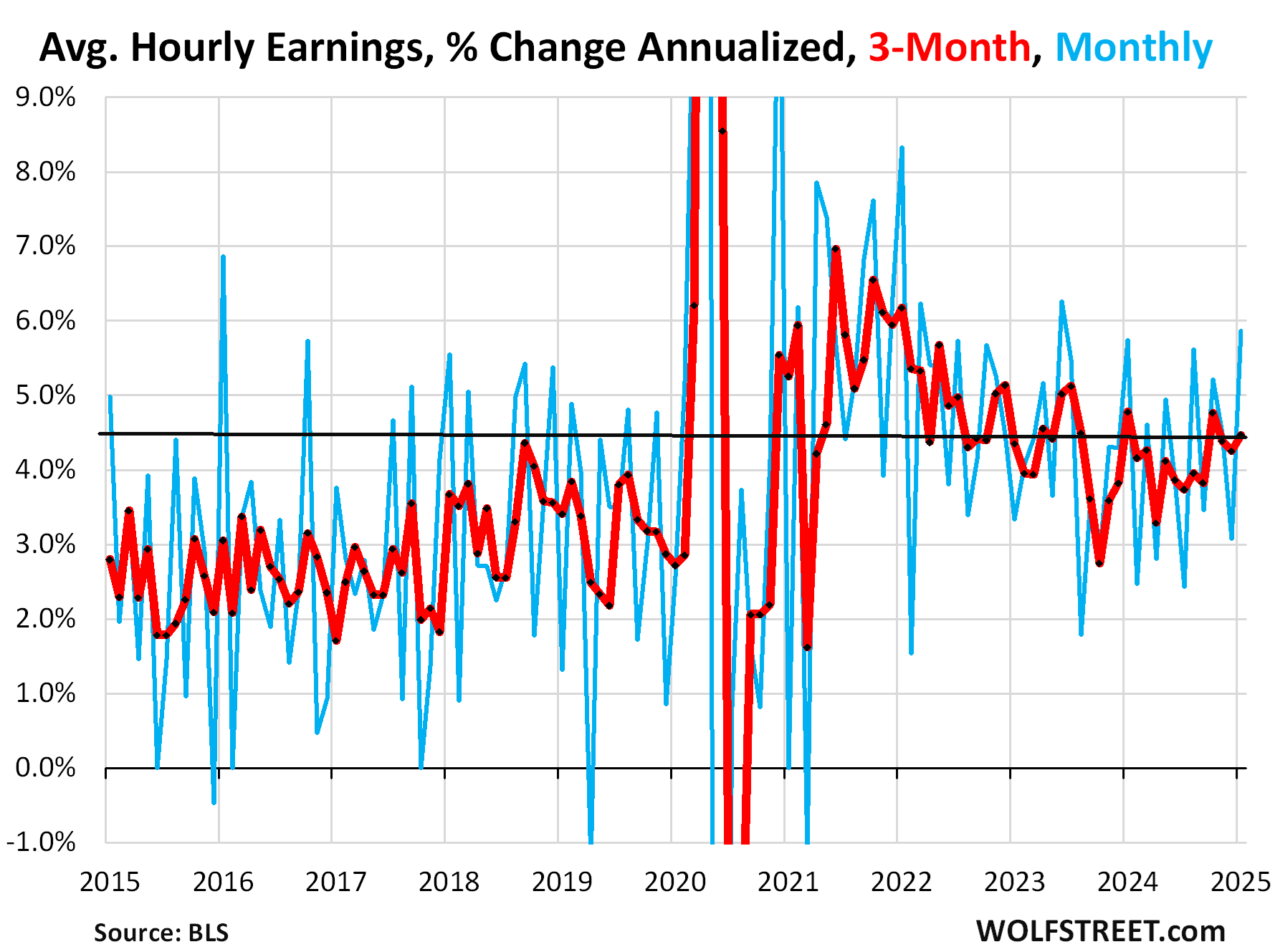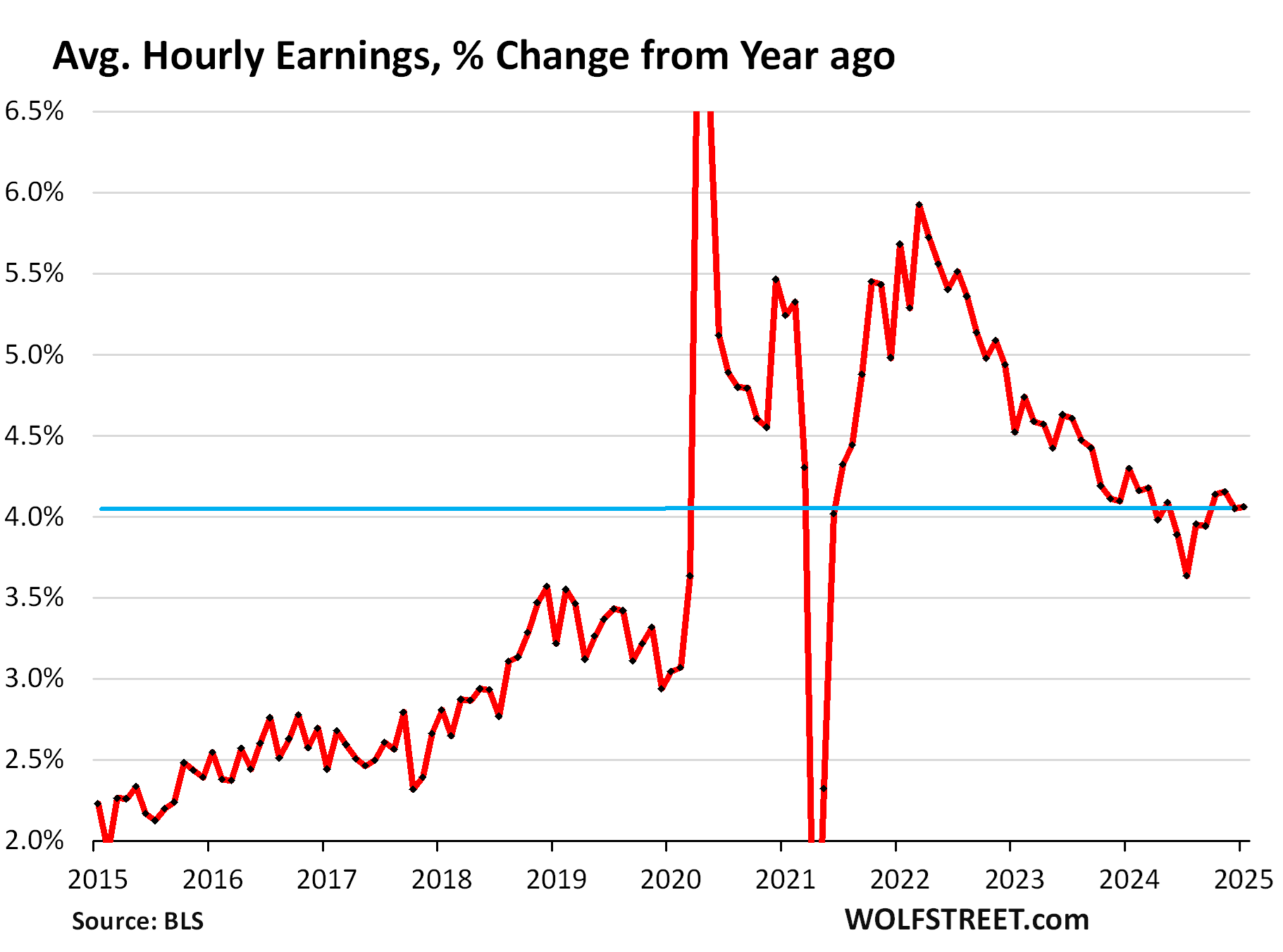Urgent action is required if Germany, Europe’s former industrial powerhouse, is to overcome its economic turmoil and prevent the deindustrialisation that has already seen thousands of job cuts, the deputy chief of the country’s […]
Highlights of the Podcast
00:00 – Intro
01:43 – Musk gains ‘full access’ to US Treasury system
03:40 – Russian gas exports via key Black Sea pipeline hit historic high – Reuters
07:12 – USAID tried to block DOGE audit
13:02 – China to impose tariff on US LNG
15:59 – New EPA Chief Lee Zeldin Targets Anti-Trump Bureaucrats, Vows to Fill Key Roles
17:59 – Germany must act immediately to stop deindustrialisation, union urges
20:48 – Outro
FollowStuart On LinkedIn and Twitter
Follow Michael On LinkedIn and Twitter
ENB Top News
Energy Dashboard
ENB Podcast
ENB Substack
ENB Trading Desk
Oil & Gas Investing In 2024
– Get in Contact With The Show –
Video Transcription edited for grammar. We disavow any errors unless they make us look better or smarter
Michael Tanner: [00:00:10] What’s going on, everybody? Welcome into a special weekly recap issue of the day and stand up here on this gorgeous February 8th, 2025. Holy smokes. Do we just had a fabulous time at the expo. I’m tired. You know, it was a long we had such great interviews and we had a great show. [00:00:28][18.6]
Stuart Turley: [00:00:29] It’s unbelievable. We’re not going to get to the 34 that we did last year. [00:00:34][4.6]
Michael Tanner: [00:00:34] Thank goodness. [00:00:35][0.3]
Stuart Turley: [00:00:35] Thank goodness. That was brutal. But we have had a ton of fun here and unbelievable. I’ll tell you, it is just a phenomenal thing. The what they do a great show. [00:00:47][12.0]
Michael Tanner: [00:00:47] No, absolutely. Guys, we appreciate you also tuning with us all week. Nothing like doing a couple of live in-person episodes of the stand up. We don’t get to do that. Do this that often. So we appreciate you guys hanging with us. Teams picked out some of our top stories for the week, so we’ll go ahead and talk that over to you. A lot of a lot of Zelinski, a lot of minerals, a lot of stuff to we talked about. We’ll go ahead and toss Gaza logo oscilloscope, whoever, toss it over for the team. Before we do that, guys, quickly again, w w w dot energy has become the best place for all your energy, oil and gas news Stu in the team again, tremendous job keeping that website up to speed everything you need to know to be the tip of the spear when it comes to the energy, oil and gas business. Hit the description below for all the links. The times you have links to the articles, check out this energy consulting for all of your oil and gas marketing needs. And that’s oil and gas marketing, not necessarily social media. So I like to make that suggestion. I then invest in oil dot energy. Use me.com if you want to become Billy Bob Thornton from Landmark. But let’s go ahead toss it over the team. We’ll see you guys next week. [00:01:42][55.1]
Stuart Turley: [00:01:43] Musk gained full access to US Treasury system. This is amazing to me that we would have to sit here and fight to get control of the U.S. Treasury system. The DOJ’s team discovered, among other things, that payment approval officers at Treasury were instructed to always approve payments even to known or fraudulent terrorist groups. Elon Musk says the government and Department of Government Efficiency doge established by President Trump, led by Musk, aims to identify and eliminate wasteful government spending that would result in a $1 trillion deficit. But economic growth would be able to match that number, which means no inflation in 2026. Musk wrote this. Absolutely. Let’s let you know that over the last 40 years, the Uni party in the United States, both Republican and Democrat under the Treasury, were committing treason. I’m going to say it right now, you can absolutely be a a school or excuse me, you cannot sit there and even pretend to think the United States Treasury was doing their job. They were funneling money out the door to terrorists, to people that did not have the US government and the US citizens invest in hard. Well done Doge. Well done, President Trump. And it is despicable. The rhinos as well as the Democrats that let the Treasury go on. Quite honestly, if it comes around to it and if the Treasury does get replaced, if the Fed gets totally replaced, I would not be totally an upset. But it appears there’s a lot of corruption going on. [00:03:39][115.9]
Stuart Turley: [00:03:40] Russia gas exports via a key Black Sea pipeline hit a historic high. And according to Reuters, deliveries of the Russian natural gas pipeline via the Turkstream pipeline reached a historic high, according to data analyzed by Reuters. When it occurred, when Key shut down transit to the fuel the EU countries via the Ukraine, Kiev decided the end of 2024 to terminate its five year gas transit contract with Russia. Energy giant Gazprom cutting off Russian pipeline. What you’re seeing is a geopolitical equation that is going to help people in the war in Russia. I’m all for General Kellogg going out and really trying to work with President Putin and President Trump and let’s end this war. There’s a couple different ways that you can talk about how to do this. Germany has had the left wing green energy policies going on with the green energy policies. They have gone through a total deindustrialization of Germany. In so goes Germany’s economy, goes the EU. Now you start having to see that there is a call for Chancellor Scholz’s new person who is going to be trying to run against him are coming up in the I believe that’s in the march elections. Is that they want Nord Stream Pipeline to come back on line. If President Trump is listening to this, it might be beneficial to see about buying the Nord Stream that is still capable because then you can negotiate with Canada to go ahead and say, hey, wait a minute, I’ll get the two turbines to go on each of then because there’s a problem between Russia and Canada. And then President Trump would have cash flow coming in from the Nordic Stream pipeline that you could turn on from Gazprom. Russia would get cheaper natural gas, but then you could plan out when to have these other ones come back online and then you could sit there and and really be involved. You would help Russia. Russia has done a great job in securing their economy. Even with the sanctions that were put on by the Biden administration because they were not enforced. And you sit back and take a look. President Putin invaded, would not have invaded Ukraine because President Trump was not was not going to do what Naito did. Nato encroach on Russia. Do not forget this. So when you sit back and take a look, I am hopeful that General Kellogg, who is working with President Trump to negotiate on this. This is a complicated process that’s now going on and I am quite pleased that there may be some things come forward and President Putin needs to have an encouragement to do business in the EU to come back to the table. Right now, he does not need to do anything and he can go off and sell his natural gas to Asia, and Ukraine can just sit there and keep losing. The way to end the war is to encourage natural gas sales in the EU and let’s end the war. Anyway, just a personal point. [00:07:12][211.6]
Stuart Turley: [00:07:13] USaid tried to block doge on it. You can’t buy this kind of entertainment. Why does this matter to energy? You ask Michael. Go ahead asking that. [00:07:24][11.0]
Michael Tanner: [00:07:24] Why does this matter to energy? [00:07:25][1.0]
Stuart Turley: [00:07:26] U.S. aid was the one that actually gave Hunter Biden and Burisma unlimited loans for drilling in Ukraine. Where did all this come from? You’re about to see all of this pile out in the record keeping. They did not want this single thing coming out. So it is absolutely abysmal. No, they tried to cover up their corruption. [00:07:52][26.5]
Michael Tanner: [00:07:53] Okay. I have a little bit more of a nuanced take on this. Okay. From the standpoint of I’ve never been a fan of USAID. I’ve heard it, you know. You know, if if you would all hang out with Stuart Turley, you understand the deep state. You understand, you know, the where all of the all of the the the meddling that we do overseas. A lot of these guys are this they are behind coups in Africa. They’re behind government takeovers in Singapore. But Elon Musk is an unelected official and the Constitution clearly gives Congress the power of the purse. And so while I am in favor of the moves he is making because they align with myself, aligned with my political beliefs, I personally believe what he is doing, running around to all of as an unelected bureaucrat. Unelected, you might ask, is no, no, no time over. There is just nobody elected him. You cast your vote for Donald Trump and JD Baird. You didn’t cast a vote for Elon Musk. No, no, no, no. [00:08:56][62.9]
Stuart Turley: [00:08:56] I’m going to give you my. [00:08:57][0.5]
Michael Tanner: [00:08:57] No, no, no, no, no, no. [00:08:58][0.7]
Stuart Turley: [00:08:58] I’m giving you my opinion. When I’m done. When you’re done, I’m going to give you my opinion. [00:09:02][4.0]
Michael Tanner: [00:09:03] Okay. If this was George Soros running around doing this for Kamala Harris, you would think this is what’s going on right now is a coup in the United States. I just that’s a fact. So the fact that Elon Musk is doing this gives me cause for pause to say is this precedent that is being set by unelected bureaucrats running around. Yes. Shut off the USAID. I’m all for it. But the Constitution clearly gives that authority to Congress. And if we can read the IG, we can read it in the in the in the Constitution. So while I am in favor of what’s going on here, what this does is chill my spine a little bit because this eventually like Chevron, remember the Chevron deference that was passed by Republicans in the Reagan administration who thought giving authority to institutions that they control would be a great thing. Well, guess what happened then? For 20 years, Chevron deference was used by guess who? Democrats who’ve been in charge for the last 20 years, basically give or take a little bit of George Bush. You can argue whether or not he was a Republican or not. But the point is, I this does give me a little bit of a scare when it comes. As to precedent and the fact that if George Soros was running around in the same capacity that Elon Musk is running Kamala Harris’s Department of Government Efficiency, we would be on this show screaming from the high heavens about a government coup. So I’m just nervous. [00:10:24][81.8]
Stuart Turley: [00:10:25] You let me say, okay, your point is very valid. But here’s the difference. They tried to hide and not allow Elon Musk in. That’s first off. [00:10:36][10.8]
Michael Tanner: [00:10:36] Because technically the U.S. Congress appropriated money for that. [00:10:39][2.7]
Michael Tanner: [00:10:39] Which. Is given to them by the Constitution. [00:10:40][1.1]
Stuart Turley: [00:10:41] But they also have been funneling none of this was also being funneled under terrorism and they were going to terrorist other folks. So, no, the Constitution you’re you’re mixing two different things. I don’t money was not did the money was not given to U.S. aid under certain bills. There is a big money hole that’s going on here. [00:11:06][25.1]
Michael Tanner: [00:11:06] I agree with you on USAID. It’s like, does it matter the end goal or the path you take to get there? You learn that in Sunday school. Does it matter about is this just how you get to a right conclusion? Matter the path. I’m with you doing this last year. USA. I have not. We should keep on. [00:11:25][18.1]
Stuart Turley: [00:11:25] Any payments in the last 40 fu%*@ years. [00:11:29][3.9]
Michael Tanner: [00:11:30] Okay. I agree with you. I agree with you on USAID. My question was, if George Soros was doing this to he. [00:11:37][7.4]
Stuart Turley: [00:11:37] Has been well. [00:11:38][0.7]
Michael Tanner: [00:11:38] So then two wrongs make a right. I’m just nervous because this power is going to come back to bite us. I don’t mind Elon Musk coming in and implementing new software systems to speed up the government. My issue is in 15 years when the Democrats eventually take over because it’s all cycles, this isn’t just going to be Trump’s not going to be in power for the next 20 years. [00:11:56][17.7]
Stuart Turley: [00:11:56] No, he’s not. [00:11:57][0.4]
Michael Tanner: [00:11:57] So what’s going to happen when. [00:11:58][1.0]
Stuart Turley: [00:11:58] You’re off base? In my opinion, and I think that you are your ideal all you’re being an ideologue on this. When you sit there and you take a look at the trillions of dollars that have been stolen from the American people over the last 40 years. That’s where it is now coming to light. And we’re about to see how far bad it has gotten. What President Trump has also done today was set up a sovereign wealth fund for infrastructure. And going through this, you’re going to see some new things coming around the corner to protect against this coming back around. [00:12:34][36.3]
Michael Tanner: [00:12:35] For sovereign wealth trade. Yes, I’m an ideologue, so I like the Constitution. It is crazy. I know I’m crazy. I know you just mind blowing the Constitution. But you know, this this just gives me a little bit of a chill. [00:12:47][11.7]
Stuart Turley: [00:12:47] You and Right. You and the alien. Omar said today that we are now in a constitution, a disaster right now. This woman is an illegal alien in the United States that married her brother. And then you and her sounding the same. So I’m all in. [00:13:02][14.5]
Stuart Turley: [00:13:03] China to impose tariff on US LNG. This also went out on your substack. Yes. Hey, the Chinese Ministry of Finance said in a statement Tuesday. The US government announced the February 1st imposition of 10% tariffs on all Chinese goods exported to the US, citing thin on shipments and other things. Guess what their response was. We are going to tariff LNG. Yeah. Yeah. [00:13:27][24.9]
Rey Trevino III: [00:13:28] I tell you what. They imported the most they ever have tried to do last year alone and they’re geared up instead of, mind you, to even buy more in 2025. Let’s see how good this economy really is and see how long, because as Michael Tanner mentioned in the intro there, you know, Canada and Mexico came pretty darn quick. They. [00:13:46][18.3]
Stuart Turley: [00:13:47] Did, Yeah. [00:13:47][0.2]
Michael Tanner: [00:13:47] Well, the difference with China is their power demands are you know, here in the States, we produce about 13 million barrels of crude oil and we consume about 21. So we are a net importer and we actually import a lot more relative to what we export due to the different blends we do get a lot from Canada is part of the reason why can a cave so quickly is because we buy a lot of their Canadian oil sands crude China. It’s about double what we are, right? So they are a huge net importer meaning okay, great, you’re going to tariff. They could claim quick. They now they have a little bit of an easier job to sustain this. But as we’ve talked about on the show, still a lot their economies not doing great. [00:14:24][36.8]
Rey Trevino III: [00:14:25] No. No. And you know, I like how you brought up the fact that we’re producing over 2013, 14 million barrels of oil a day. And here in the great state of Texas, we just got our numbers for the month of October. I know in a few months we finally got I mean, actually, Texas produced 44% of all oil that was produced in America in October alone. So we’re doing a pretty darn good job and we really can’t complain. And don’t forget that Texas is, as you go back to do the story of the actual liquid natural gas, Saudi Arabia of the world. So I say bring it on. Like, you know, let’s see how long they can last. But I loved how one one individual from the world, from China said this was a violation of the World Trade Organization to put these tariffs on. It was like, give me a break. Do this. Not real is. You know, And. [00:15:10][45.2]
Stuart Turley: [00:15:10] In fact, they they how much do they actually buy from the United States? They tariff anything anyway. So, in fact, Canada has tariffs on the US right now on agriculture of 250%. So this is the tariff. All the tariff talk out there is hogwash. What we are seeing is a right sizing on the rest of the world. President Trump go forth and terror, you. [00:15:34][24.3]
Rey Trevino III: [00:15:34] Know, and he’s expected to speak to the president of China as being here real soon, if I’m correct. [00:15:40][6.1]
Michael Tanner: [00:15:41] What a concept. World leaders talking to each other. [00:15:44][2.3]
Stuart Turley: [00:15:44] But as Xi Ji Ping being just had a potential alleged stroke I just heard this Sunday and so that he is had the CCP has removed him from control from the military. So there are some things going on over there. [00:15:58][13.9]
Michael Tanner: [00:15:58] Interesting. [00:15:58][0.0]
Stuart Turley: [00:15:59] New EPA chief Lee Zeldin targets anti Trump bureaucrats. And I’ve got one for you here on this. I got a question for you on this one here. President Trump, the the EPA. I love Lee Zeldin. Leave your out there. I want to have you and Chris right on a panel. And we want to talk about how we can deliver lowering the cost across the United States to all consumers in the United States. But aren’t we’re going to lower costs. President Trump said to Lee, By the way, if you’re going to put out one regulation, you have to eliminate ten others. Wow. That is how you do it. Good regulations, lowering regulations help and MP operators save money. [00:16:46][46.8]
Rey Trevino III: [00:16:47] Absolutely. Be just in the bureaucracy alone and jumping through the hoops that this is going to be able to save operators money not only in Texas, but more importantly, in other parts of the world where the Bureau of Land Management really manages all the minerals and everything that goes on. And, you know, for anybody out there that’s ever watched Shameless plug or listen to my show, The Crude Truth, I’ve been on there before saying that I support the EPA has done wonderful things in its time. We don’t talk about the acid rain up in the Northeast anymore. You know, the Clean Water Act of the 1970s, early or late 60s. It has done great things, but it has been turned in the last 20 years into a weapon against the oil and gas industry. And so to have somebody like Lee Zeldin in there is very, very exciting, along with Chris Wright getting sworn in and Doug Burgum. I mean, what a team. What a team. [00:17:36][49.4]
Michael Tanner: [00:17:36] Yeah, I love this quote that comes out for from from Secretary Zeldin, who now is officially confirmed 56 to 42. I don’t believe that anybody should be here at the EPA who is not committed to the agency mission and the lawful direction coming from the duly elected president of the United States. [00:17:52][15.8]
Stuart Turley: [00:17:53] I agree he will definitely have his work cut out for him, as this article says, and we know that he can do it. Germany must now act to stop. The unions are all lined up in the the problem that they’re having. Germany must act immediately to stop deindustrialization. The unions are calling for it. Wait a minute. You now have no nuclear. You have they’ve had their fire, their coal back up and now we have no natural gas. Retro. If Scooby Doo was an energy policy, retro would actually be on their policy. [00:18:30][37.5]
Rey Trevino III: [00:18:31] You know, I want to say this. This was two days ago that you guys stopped off. And I think for your listeners out there, I think it’s very key. If we’ve asked you before why exactly we need to be focused on what you’re doing and how America can be better at that. I’ll continue to focus on this. [00:18:46][15.4]
Stuart Turley: [00:18:47] You bet. [00:18:47][0.3]
Rey Trevino III: [00:18:48] It’s been a waterfall effect. [00:18:49][1.0]
Michael Tanner: [00:18:49] Yeah, well, a lot of it’s because Europe is a net importer of energy. And so if they are a net importer of energy, the question is where are they going to get energy? We talked years ago or last year, the big topic was Qatar. The Middle East was setting up huge import export, 30 year agreements with Europe and now then with Nord Stream. That happened last year with the Ukrainian seals coming in and taking them out. That’s a joke. Definitely. It was definitely the United States. I was brought US aid. It was probably funded by USA. But the reason why it’s so important is because if Qatar can’t quite hand in all of these Middle Eastern countries, either stop supplying or the supply goes dry, the United States can’t step in. And I think that’s what Trump is counting on. And what the United States energy market is counting on is that Europe is going to be a huge, huge net importer. [00:19:35][45.6]
Stuart Turley: [00:19:36] Absolutely. So the the ag medal represents 2.2 million workers from sectors including the car manufacturing, steel, electronics. And your point is very valid. Why does Germany matter? So goes Germany’s economy, so goes the EU. But guess who is imitating Germany, New Jersey, New York, California? All of the green energy policies are following right in line. And so your point is out of the park. Huge for this. The union’s deputy leader told Euro TV that the EU and incoming government can still stop the job losses. The only way and you’re hearing they heard the zero seconds, the only way they’re going to stop that is if they get low cost natural gas from Russia and that is now can they get the higher cost LNG from the US? Absolutely. Can we do it at the best possible way? Yes. The risk consulting group have cradle to grave solution going from LNG all the way to Europe. But can even Russian natural gas solve the problem? No. [00:20:47][71.2]
Michael Tanner: [00:20:48] No. [00:20:48][0.0][1212.9]






















